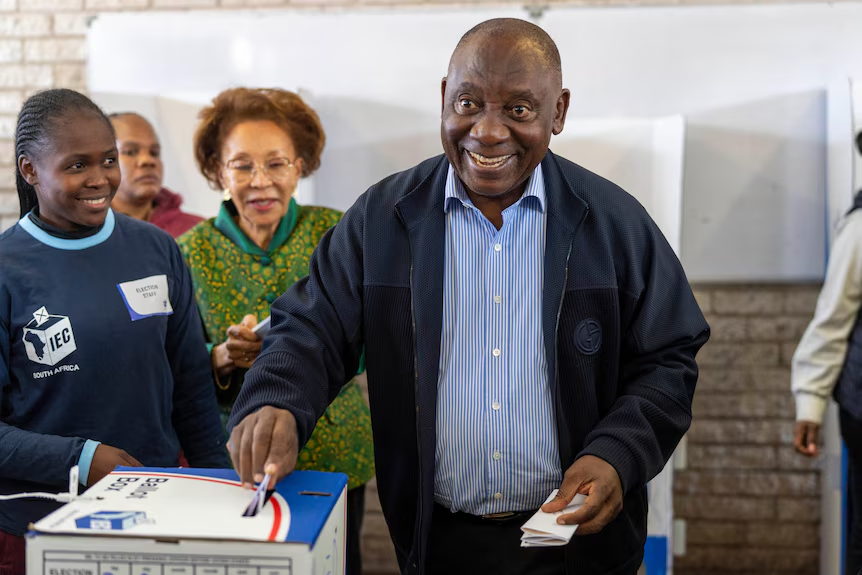South Africans vote in election that pits the African National Congress against significant opposition

SA Out-going President Cyril Ramaphosa casting his vote in Soweto
- In short: South Africans have voted in an election that is anticipated to test the 30-year rule of the African National Congress.
- About 28 million people were registered to vote.
- What’s next? The results are expected to be announced on Sunday, with the next president to be selected at a later date by the ruling party or coalition of parties.
Polls have closed in South Africa’s election which is seen as the country’s most important since apartheid ended 30 years ago, with the result potentially putting the young democracy in unknown territory.
At stake is the three-decade dominance of the African National Congress (ANC) party, which led South Africa out of apartheid’s brutal white minority rule and to democracy in 1994.
It is now the target of a new generation of discontent in a country of 62 million people — half of whom are estimated to be living in poverty.
After casting his vote, President Cyril Ramaphosa said that he had no doubt his ANC would win again with “a firm majority”.
The main opposition leader, John Steenhuisen, disagreed.
“For the first time in 30 years, there is now a path to victory for the opposition.”
Africa’s most advanced economy has some of the world’s deepest socio-economic problems, including one of the worst unemployment rates at 32 per cent.
The lingering inequality, with poverty disproportionately affecting the Black majority, threatens to unseat the party that promised to end it by bringing down apartheid under the slogan of a better life for all.
“Our main issue here in our community is the lack of jobs,” said Samuel Ratshalingwa, who was near the front of the line at the same school in the Johannesburg township of Soweto where Mr Ramaphosa voted.
He came out before 7am on a chilly winter morning.
“We have to use the vote to make our voices heard about this problem,” Mr Ratshalingwa said.
After winning six successive national elections, several polls have put the ANC’s support at less than 50 per cent before this vote — an unprecedented drop.
It might lose its majority in parliament for the first time, although it’s widely expected to hold the most seats.




